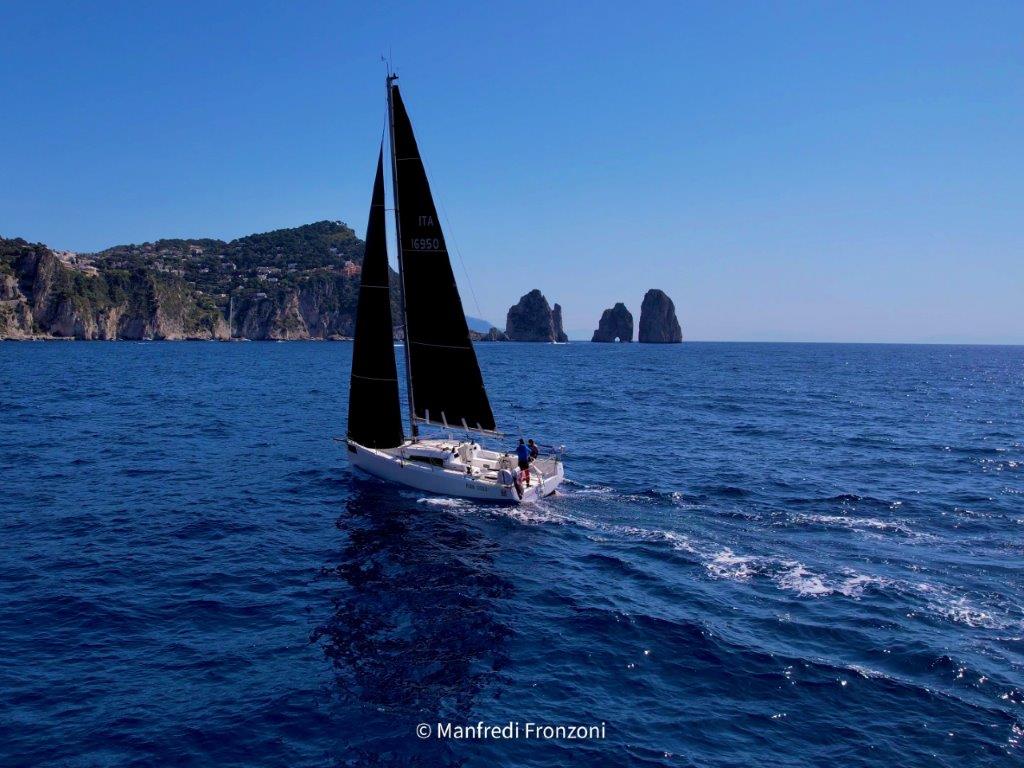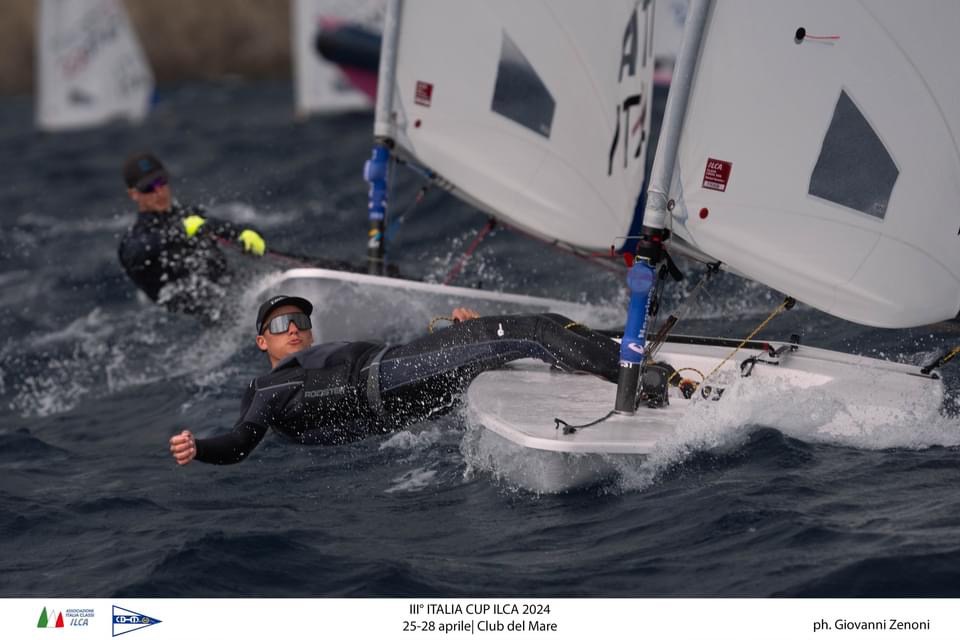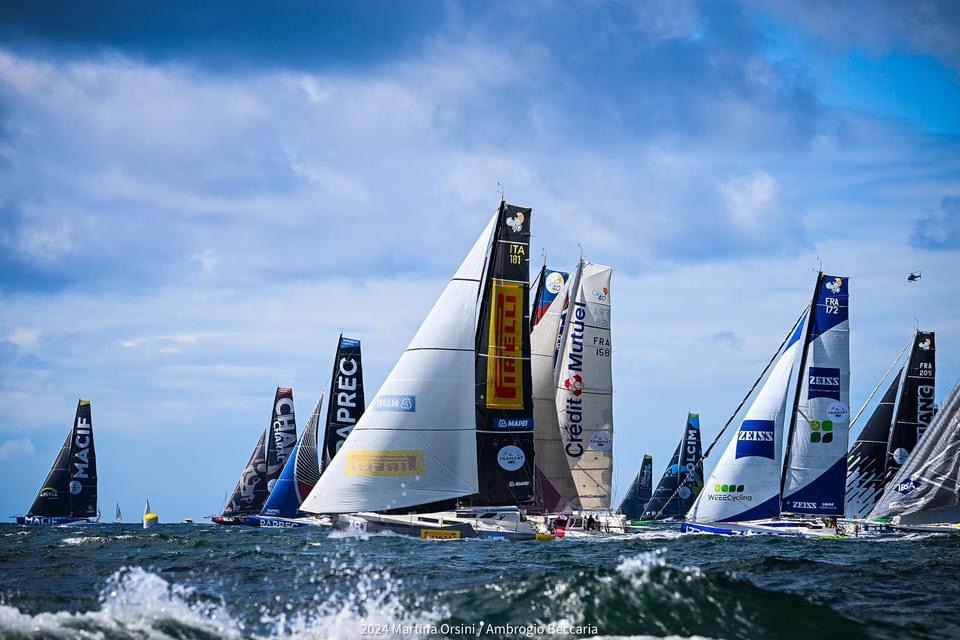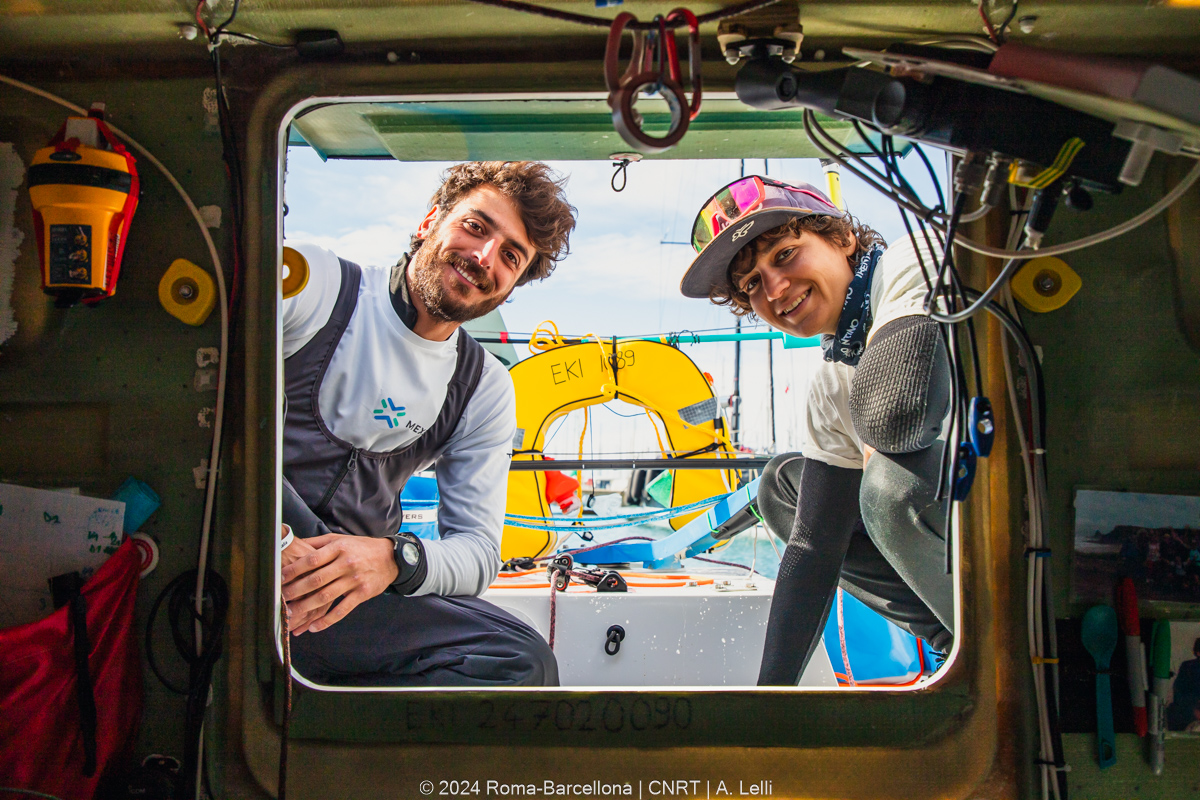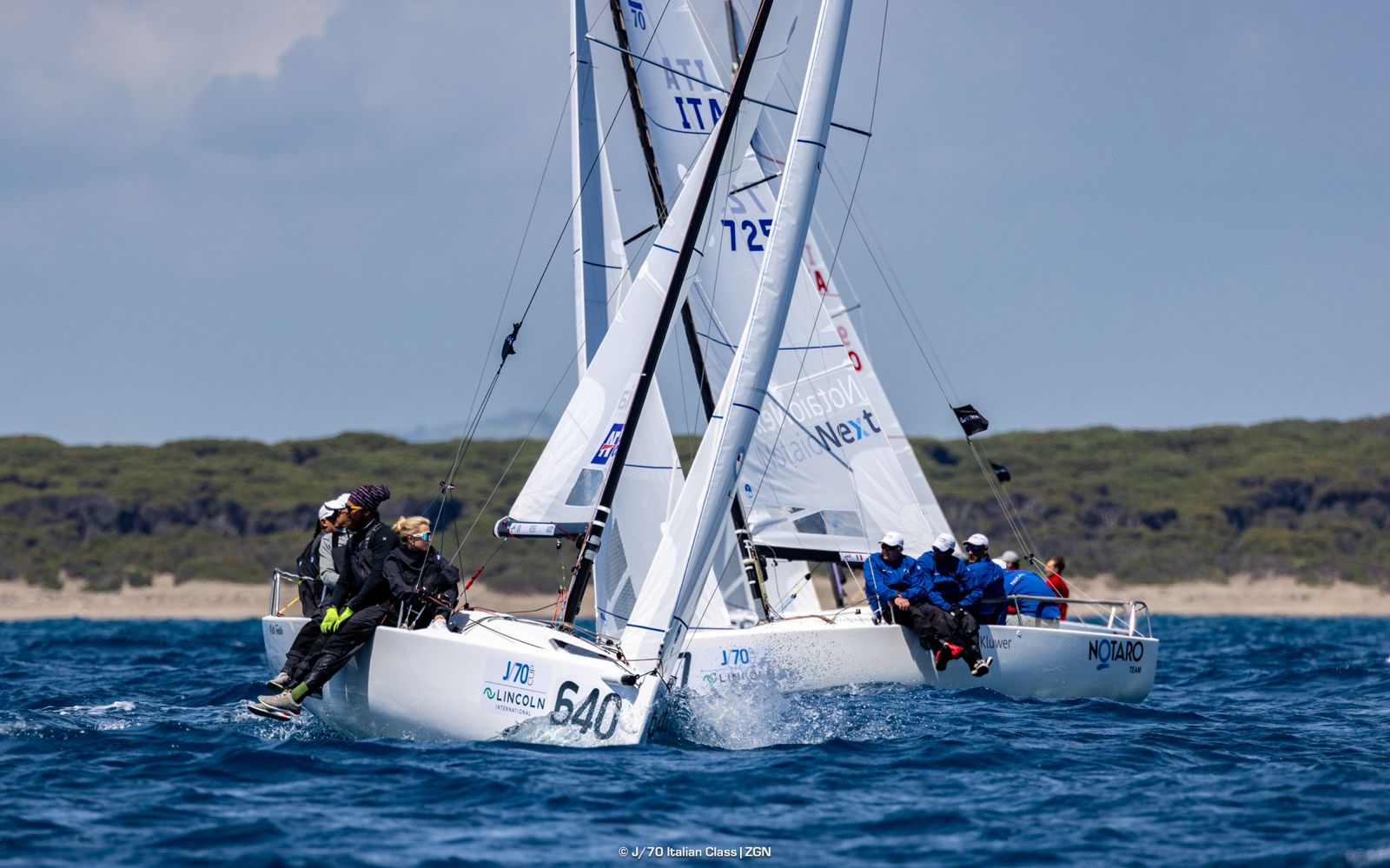Londra, UK- Bob Fisher e’ il decano dei giornalisti velici a livello internazionale. Nato a Lymington, dove poi e’ nato anche Ben Ainslie, Fish e’ autore della piu’ completa storia dell’America’s Cup e di moltissime altre pubblicazioni. Fisher ha scritto una sua opinione assai diretta sulla vicenda della crisi finanziaria in cui versa World Sailing. La pubblichiamo e segnaliamo che Bob Fisher fa parte del gruppo che sta contestando l’attuale direzione del CEO Andy Hunt e che si propone di “riportare la vela ai velisti”.

Questa la traduzione e sotto il testo originale. Segnaliamo che lo scritto riporta testualmente l’opinione personale di Bob Fisher e non quella di Fare Vela:
“Quando World Sailing si riunira’ per il suo Meeting Annuale a Sarasota, Florida, ai primi di novembre, si trovera’ ad affrontare una crisi, o piu’ precisamente, diverse crisi. Tutte di tipo finanziario o che hanno le loro radici in faccende finanziarie. Tutto e’ iniziato con la decisione di trasferire i propri quartier generali da Southampton a West London, un trasloco che e’ costato oltre un quarto di milione di sterline all’anno.
Uno si puo’ chiedere perche’? Southampton e’ una citta’ costiera vicino all’epicentro velico della Gran Bretagna, il Solent,, dove tutto e’ piu’ a buon mercato rispetto al West End di Londra – salari, affitti e trasporti compresi. Cio’ ha comportato che WS abbia consumato le sue risorse fino al punto assai pericoloso di aver gia’ speso i fondi ricevuti dalle Olimpiadi 2016, ricevuti nel 2017. Questi ammontano a 11.700.000 sterline, ma non abbiamo alcuna idea di cosa sia rimasto in cassa dopo che WS ha usato tali fondi per una varieta’ di scopi. Tali fondi sarebbero dovuti servire per tutto il quadriennio fino ai prossimi Giochi Olimpici insieme alle altre forme d’introiti.
Nel 2017, il deficit iniziale a budget era stimato in 2.115.242 sterline, poi portato a 4.252.000 sterline, ma l’ultima perdita registrata ammonta a 5.239.000 sterline. I salari coprono 1.111.000 sterline del passivo – con il CEO che si porta a casa 200.000 sterline all’anno pur avendo una conoscenza minuscola del nostro sport – non naviga e non ha mai navigato. Il suo braccio destro, il direttore commerciale, ‘ come lui un non velista, ne prende pochi meno ma non e’ piu’ nell’organizzazione, dato che si e’ dimesso per andare a occupare un posto simile in un’organizzaizione che si occupa di sport di motori.
WS impiega 25 persone, di cui 14 sono in ruoli amministrativi e di marketing e 11 in attivita’ dedicate alle regate, di queste solo una e’ impiegata nello sviluppo e nel training. Non vi pare che questo debba essere considerato eccessivo? I costi relativi nel 2017 sono stati di 1.611.085 sterline, di cui 200.000 al CEO, portando a una media dei salari per gli altri dipendenti di poco meno di 60.000 sterline all’anno a testa. Il costo per i dipendenti e’ cresciuto di 220.000 sterline tra il 2016 e il 2017, e un incremento del 40 per cento rispetto al 2016 e’ atteso per il 2018, portando il totale delle spese per i dipendenti a 2.250.000 sterline.
E tutto il tempo che WS ha impiegato per la promozione del kiteboard (uno sport completamente differente) ai Giochi Olimpici? Perche’? Ve lo potete chiedere. Perche’ il CEO ci vede una notevole forma d’introiti, anche se non ha nulla a che vedere con la vela, il CEO e’ pronto a sacrificare due “eventi velici” ai Giochi per far posto al kiteboarding. Nel farlo, pero’, ha ribattezzato lo sport come “Para Sailing”. Nessun nome suona piu’ falso.
World Sailing, in precedenza International Sailing Federation (ISAF) e prima ancora International Yacht Racing Union (IYRU),e’ stata fondata per servire gli interessi dei velisti e regatanti, ma quest’obiettivo sembra essersi perso negli anni recenti, per essere solo rimpiazzato da un business che raccoglie denaro dai suoi membri, sponsor e dal CIO, per poi spenderli solo in minima parte in investimenti che riguardano i suoi costituenti (i velisti). Il CEO si porta a casa una somma che e’ quasi uguale a quanto tutte le nazioni membre versano insieme come contributo.
Non e’ difficile capire cosa va storto e qual e’ la strada per curare i mali. Per prima cosa non abbiamo bisogno di una torre d’avorio per generare introiti, non serve, cosi’ che dovremo farne a meno e riportare immediatamente la sede a Southampton. I risparmi sarebbero notevoli solo con tale mossa. Il personale impegato a Londra potrebbe non gradire la cosa e dimettersi, dandoci l’opportunita’ di rinfrescare lo staff a un costo minore, con ulteriori risparmi.
Un ritorno al nome precedente (e ci sono anche alcune preferenze per IYRU) darebbe all’organizzazione un indirizzo chiaro sui suoi scopi. Al momento il nome di World Sailing e’ troppo generico (che andrebbe bene per l’attuale CEO) consentendo così che il suo obiettivo sia vago. Piu’ di tutto abbiamo bisogno che siano i velisti a ricoprire gli incarichi e non impiegati o manager, dato che questi spendono denari senza averne le capacita’. Facciamo questi cambiamenti fino a che c’e’ ancora qualche soldo nella borsa, prima che siano sprecati senza necessita’.
WS e’ paralizzata ed e’ giunto il momento di tirarsi fuori dalla miseria che sta causando e prima che non ci sia piu’ nulla da fare per il nostro movimento. Il Meeting Annuale a Sarasota e’ l’opportunita’ ideale per un grande cambiamento e quasi certamente cio’ accadra’. Credeteci o no, gli incontri si prolungheranno tutti i giorni, ma da tutto questo emergera’ un’organizzazione con un chiaro obiettivo, vedere dei miglioramenti nella gestione della vela e delle regate veliche, e di tutto questo dovremo esserne grati”.
(Bob Fisher)
Testo originale
OPINION
By Bob Fisher
“When World Sailing gathers for its annual meeting in Sarasota, Florida in early November, it would appear to be facing a crisis, or more strictly, several crises. They are all financial, or have their roots in finance. It all began with the decision to move its headquarters from Southampton to West London, a move costing over a quarter of a million pounds every year!
One has to ask why? Southampton is a coastal city close to Britain’s epi-centre of sailing, the Solent, where everything is cheaper by a marked amount than the West End of London – salaries, rents and transport among them. It has resulted in World Sailing draining its resources to the extent that it is already deep into spending the funds that it received from the 2016 Olympic Games, received in 2017. These amounted to £11,700,000, but we have no idea on what is left after World Sailing has used these funds for a variety of purposes. They are meant to last throughout the four-year period until the next Olympic Games, together with the other sources of income.
In 2017, the initial budget deficit was estimated to be £2,116,242, later revised to £4,252.000, but the actual loss figure turned out to be £5,239,000. Salaries accounted for £1,111,000 of that – the CEO takes home £200,000 and his knowledge of the sport is miniscule – he does not and has not sailed. His sidekick, the Chief Commercial Officer, also a non-sailor, drew slightly less but is no longer with the (for want of a better word) organization – he resigned to take up a similar post with a motor racing body.
World Sailing incidentally employs 25 people, of which 14 are in administration and marketing, and 11 in activities dedicated to sail boat racing, of which only one is in training and development. Wouldn’t this be considered as top heavy? The cost of this in 2017 was £1,611,085 of which £200,000 went to the CEO, making an average salary for the rest at a few pence short of £60,000 each. The cost of employment rose £220,000 between 2016 and 2017 and a 40% increase on the 2016 figure is expected for this year, taking the total employment cost to £2,250,000!
And all the time World Sailing is dabbling with the promotion of Kite Boarding (a totally different sport) into the Olympic Games. Why? You may well ask. Because the CEO sees it a huge source of income, but it has nothing whatsoever to do with sailing, yet the CEO is prepared to sacrifice two “sailing events” in the Olympic Games to Kite boarding. But in doing so he has re-named the sport as “Para Sailing”. Rotting fish by any other name would smell as foul!
World Sailing, previously the International Sailing Federation (ISAF) and earlier the International Yacht Racing Union (IYRU), was set up to serve the interests of yacht racing sailors, but this object appears to have been lost in recent years, only to be replaced by a business that collects money from its members, sponsors and the IOC, and spends it with a very small percentage invested in its constituents (its members – the sailors). The CEO takes home an amount that is almost equal to the sum of all the member nations’ contributions collectively.
It’s not difficult to see what is wrong or the path to cure the ills. Firstly we do not need an ivory tower to generate income – it doesn’t, so we should rid ourselves of it immediately and return our headquarters to Southampton. The saving would be huge from that alone. Those employed in London might not like the move and resign, providing the opportunity to hire fresh staff at a lower rate – a further saving.
A return to an earlier name (and there is preference for IYRU) would give the organization an indication of its purpose. Currently the title World Sailing is too general (which may suit the current CEO) allowing its main purpose to stray. Above all we need sailors to take charge and not the executive – it spends money thoughtlessly without qualification of its authority. Let us make the changes while there is still some money in the kitty – before it is needlessly wasted.
World Sailing is crippled and it is high time we were put out of the misery that it is causing and before it can do any more harm to our sport. The Annual Meeting in Sarasota is the ideal opportunity for a mega-change and almost certainly it will occur. Believe it or not, the meetings will overrun each and every day, but from it all will emerge an organization with a purpose – to see improvement in the organization of sailboat racing, and for that we should be grateful”.


